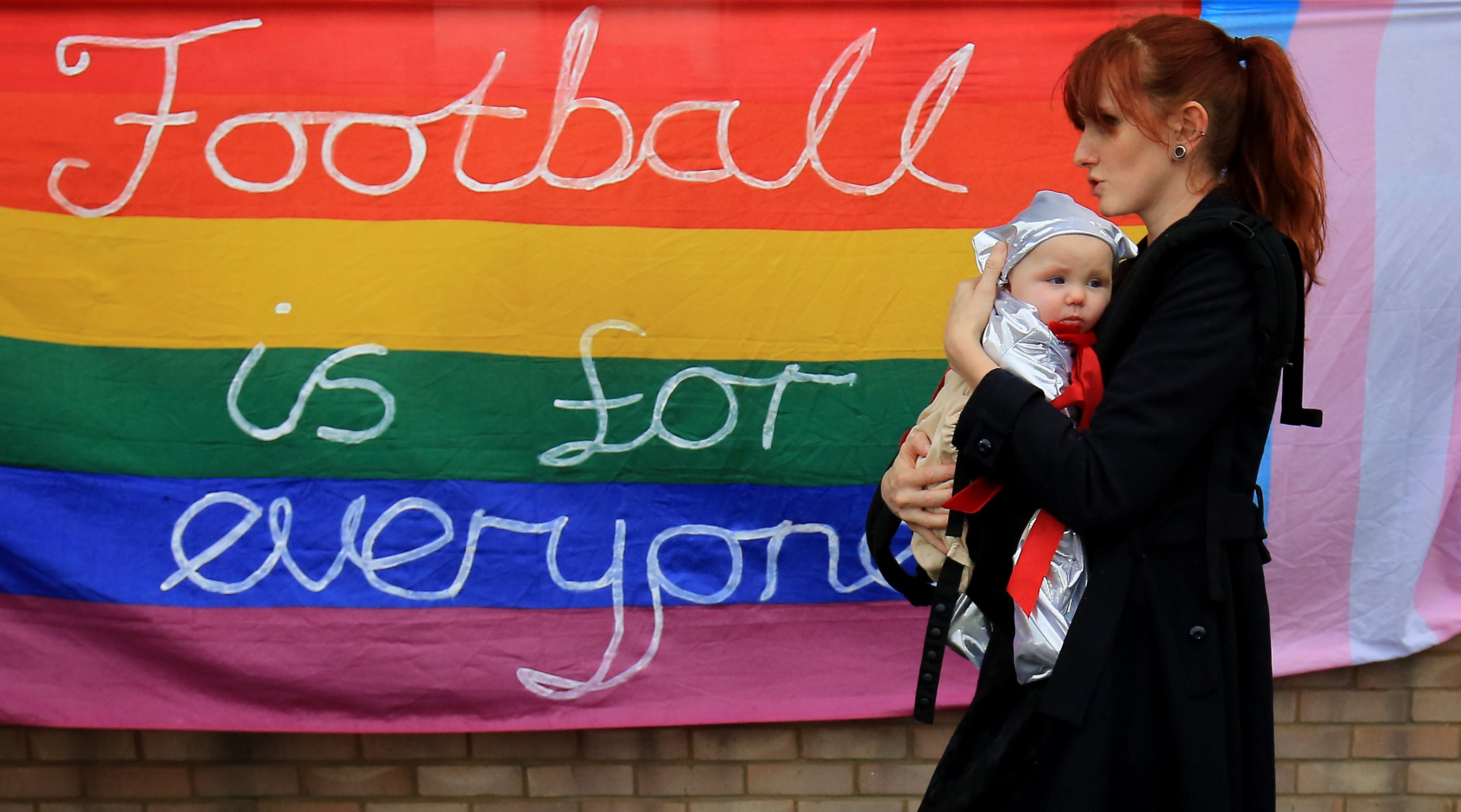EFL taking tougher stance on inclusion with new league table strategy
The table will be based on their success in meeting pre-agreed targets.

Your support helps us to tell the story
From reproductive rights to climate change to Big Tech, The Independent is on the ground when the story is developing. Whether it's investigating the financials of Elon Musk's pro-Trump PAC or producing our latest documentary, 'The A Word', which shines a light on the American women fighting for reproductive rights, we know how important it is to parse out the facts from the messaging.
At such a critical moment in US history, we need reporters on the ground. Your donation allows us to keep sending journalists to speak to both sides of the story.
The Independent is trusted by Americans across the entire political spectrum. And unlike many other quality news outlets, we choose not to lock Americans out of our reporting and analysis with paywalls. We believe quality journalism should be available to everyone, paid for by those who can afford it.
Your support makes all the difference.Charlton, Bradford and Blackburn are among just 10 per cent of EFL clubs doing enough to challenge discrimination and open football up to underrepresented groups, admitted the league’s diversity chair.
The EFL is taking a tougher stance on inclusion this season and hopes to double that number over the next five years, beginning with the introduction of a new system which will award clubs gold, silver, or bronze ratings – or none to those who fall below expectations – based on their success in meeting pre-agreed targets.
David McArdle, the EFL’s head of equality, diversity and inclusion (EDI), is optimistic the new process, which will see results published in a “league table”, will enforce more accountability across the EFL’s 72 clubs.
“At the end of the season we can say these are the challenges, this is why clubs are struggling, these are the trends we’re starting to see,” said McArdle, speaking at the launch of Together, the EFL’s new five-year EDI strategy.
“So we can then influence the next set of education material, the next set of challenges, do we need to go and talk to more communities at a different level, because this is where our clubs are struggling, so we can then do that.
“That accountability becomes that much more evident, there’s much more opportunity. But also it shouldn’t be seen just as a tick-box exercise, it should be seen as an opportunity for clubs to tell their journey.
“By moving from bronze to silver [or] from silver to gold they can tell a story, and really make it more of the progression, not just the status quo.”
McArdle has factored in the vast difference in resources and infrastructure between top Championship sides and those newly promoted from the National League, a gap that will be addressed by allowing clubs to set their own individual goals and targets.
Those will be tailored to their specific communities and could range from increasing engagement with minority groups to improving access for disabled supporters.
The EFL itself will also be launching its own initiatives, including a partnership with Little Box of Books to provide 8000 books to primary schools over the next five years.
McArdle said: “If you went to a school library, all you would see is mum, dad, brother, sister. Usually white. The sister wants to be a ballerina, the brother wants to be a footballer. If we want to try and change society, we need to change that.”
The EFL is one thing. The real difference is going to be the stories told within the clubs
The EFL previously evaluated clubs every three years, based on a one-level code of practice they either did or did not meet. The organisation has, said McArdle, “altered that quite considerably” under the new system, now on a two-year cycle with this season classed as a “development year”.
Blackburn, one of the clubs McArdle would award a gold medal to if assessed today, appointed their first integration development manager, Yasir Sufi, in 2020.
Rovers’ research revealed that more than 30 per cent of the local community were from a South Asian background, a figure that rose to 60 per cent in under-19s but that wasn’t reflected in the stands.
That changed after the club introduced the Ewood Express, which transports young people directly from their schools or mosques to attend matches with teachers or volunteers for £6, inclusive of the bus.One game last season saw 1000 children take advantage of the service.
Rovers have also partnered with a local food supplier to ensure all concessions kiosks had a Halal food provision, opened a multi-faith prayer room available for use on matchdays, and implemented an alcohol-free zone after soliciting direct feedback from the local community.
The EFL’s ratings will be made public, said McArdle, not to name and shame, but to inspire accountability or even copycat initiatives.
“Clubs [will] see what others are doing,” he added. “We want people to be aware of it. We’ll be giving clubs assets where they can use and promote that information.
“The EFL is one thing. The real difference is going to be the stories told within the clubs.”